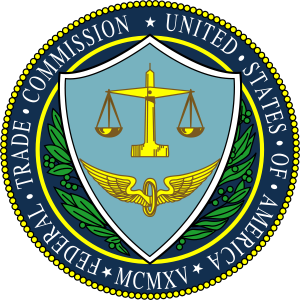Clickbooth Affiliate Network To Pay $2 Million FTC Settlement Over Acai Berry Ad Claims
Fighting deceptive advertising on the web is probably akin to playing a game of Whac-A-Mole, but the FTC has scored a hit against affiliate marketers that allegedly used deceptive ads to sell acai berry weight-loss products and colon cleansers. The FTC recently announced a $2 million settlement with the Clickbooth affiliate network over charges that […]
 Fighting deceptive advertising on the web is probably akin to playing a game of Whac-A-Mole, but the FTC has scored a hit against affiliate marketers that allegedly used deceptive ads to sell acai berry weight-loss products and colon cleansers.
Fighting deceptive advertising on the web is probably akin to playing a game of Whac-A-Mole, but the FTC has scored a hit against affiliate marketers that allegedly used deceptive ads to sell acai berry weight-loss products and colon cleansers.
The FTC recently announced a $2 million settlement with the Clickbooth affiliate network over charges that Clickbooth’s affiliate marketers deceived consumers with “bogus weight loss claims on fake news sites.”
According to the complaint, the affiliates used websites that looked like real news sites and used domains such as online6health.com, channel5healthnews.com and others. The websites included content that looked like news reports with titles like “Acai Berry Diet Exposed: Miracle Diet or Scam?” and “1 Trick of a Tiny Belly: Reporter Loses Her ‘Belly’ Using 1 Easy Tip.” The sites often used the name and/or logos of recognizable broadcast and cable news networks to give the impression that the reports were seen on these networks.
The complaint alleged that Clickbooth designed some of these websites for its affiliates. Here’s more from the FTC news release:
The Clickbooth defendants also are responsible for their affiliates’ misrepresentations that the affiliate marketers’ websites are objective news reports, that objective reporters have performed independent tests of the products, and that “comments” in the affiliate marketers’ ads have expressed views of actual consumers, according to the complaint. The defendants’ affiliates failed to disclose that the contents of their advertisements actually were paid advertisements, and that consumers who sign up for a “free trial” would be billed on a recurring basis for additional shipments of the product, according to the FTC.
The FTC says it will try to use the settlement money for refunds to consumers that were allegedly deceived by the defendants’ marketing.
Legally, the settlement doesn’t amount to an admission of guilt by the defendant.
Contributing authors are invited to create content for MarTech and are chosen for their expertise and contribution to the martech community. Our contributors work under the oversight of the editorial staff and contributions are checked for quality and relevance to our readers. MarTech is owned by Semrush. Contributor was not asked to make any direct or indirect mentions of Semrush. The opinions they express are their own.
Related stories